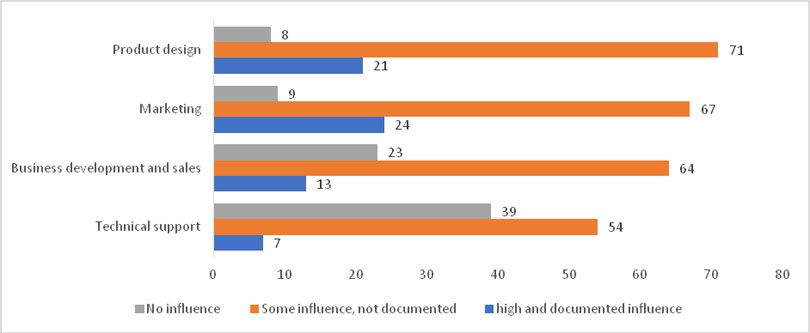They talk about customer centricity, customer experience or CX, but few organisations know how to leverage it properly, much like the idea of “diversity and inclusion” in the workplace. Many agree that diversity is good for business but few know how to maximize and leverage it by driving inclusion, let alone how to quantify the returns on investment (ROI) when diversity is well leveraged. CX is in the same space - we know for instance that 90% of people, globally, report that they would prioritise experience over possessions in their lives. Hence the rise and profitability of the sharing economy.1 A 2017 Capgemini study showed that three-quarters of organisations believe themselves to be customer-centric, but only 30% of consumers agree. The result is that 8 in 10 consumers are willing to pay more for a better customer experience as they are frustrated by poor experience.2
Forrester.com/Predictions3 observed that in 2018 few businesses made real gains across CX indices. Most businesses continue to plateau and some fell. Of the CX professionals interviewed, 89% state that customer experience ROI is not well established in their organisations. The reason offered for the dismal performance is the mismatch between what CX needs to do and what it is permitted to do - a trend that is predicted to continue in 2019. Forrester predicts that 20% of brands will give up on strategic CX initiatives and resort to price reduction for short-term gains. A sad conclusion considering the commercial opportunity presented by engaging the right effort to get CX right.
A Convesocial and Corinium study on CX trends for 2019,4 specifically covering North America and Europe, shows that the top five barriers to improving CX is achieving a single view of the customer (41%), followed by achieving a consistent customer experience across all channels (35%), lack of C-suite buy-in at 21% and employee engagement at 20%. The extent of CX influence over other departments differed by department.

These findings suggest that there is a lot of room for CX strategy to be elevated in organisations. Organisations may need to transform their business strategy development practices to integrate CX strategy and drive single-mindedness across departments on the delivery of CX. Yet, 39% of these organisations believed that changing the organisational structure will improve CX, while 50% did not believe so and 11% were not sure. This suggests that companies may be faced with some cognitive dissonance preventing them from leveraging CX opportunities, which is unfortunate because three key human trends are likely to increase in importance in 2019 and underpin customer experience transformation. These are:
- an increasing need for businesses and brands to align to a deeper social and customer purpose.
- increasing employee engagement to be able to attract talent and deliver to that purpose.
- creating a customer-centric culture across the organisation to become more responsive and agile.
This cognitive dissonance is not new, as also seen in diversity and inclusion initiatives, where executives often intellectually understand the imperatives of diversity but emotionally fail to embrace it because of, amongst other reasons, perceived consequences such as the loss of one’s own comforts in the organisation. Transforming organisations structurally to meet CX imperatives often means breaking down siloes that some may have emotional or other investment in. Nene Molefi, a South African and international thought-leader in diversity and inclusion, emphasises the urgency of getting senior executive buy-in and developing a strategy that is driven from the top to filter down into the organisation. She asserts that without such buy-in diversity and inclusion programs almost always fail. When working with organisations she follows a framework that first addresses the mind, then the heart and then the hands to transform culture to truly embrace diversity and inclusion.5
Similarly, CX strategy is unlikely to succeed if senior executive buy-in is still cited as one of the top four barriers to CX improvement. Increasingly shareholder return is reliant on how an organisation views and manages CX because there is now a strong causal link between the way a brand is experienced and financial returns. Consequently, if it is not already, CX should be elevated to become a board responsibility.
The vision, leadership and implementation necessary for the organisation to transform into a truly customer-centric organisation needs to come from the top, with the rest of the organisation empowered with the resources they need to give your organisation the Experience Advantage it needs to thrive.
1Global Monitor, KantarTNS
2Capgemini (2017). The Disconnected Customer: What digital customer experience leaders teach us about reconnecting with customers: Press
3Forrester (2018). Predictions 2019: Transformation goes pragmatic
4Convesocial and Corinium (2018). Customer Experience Trends for 2019: Building the Organization of the Future
5Nene Molefi (2017). A journey of Diversity & Inclusion in South Africa: Guidelines for leading inclusively. Republic of South Africa: KR Publishing